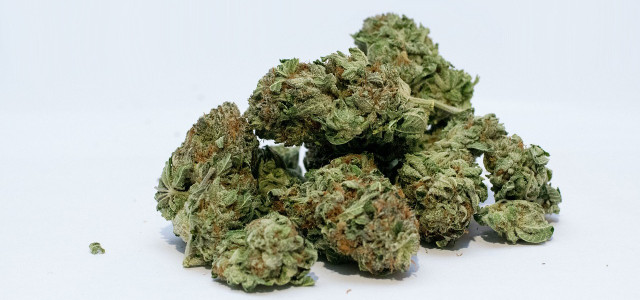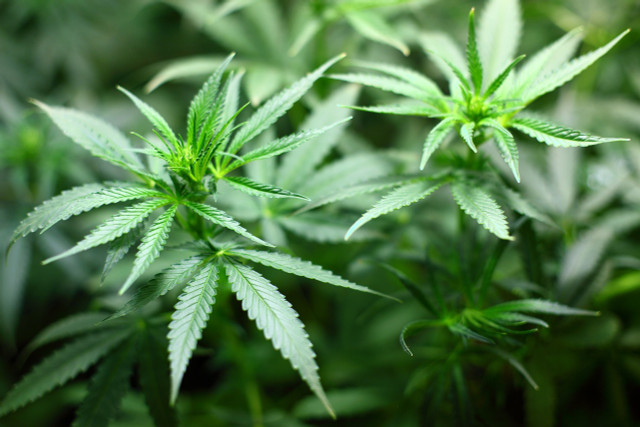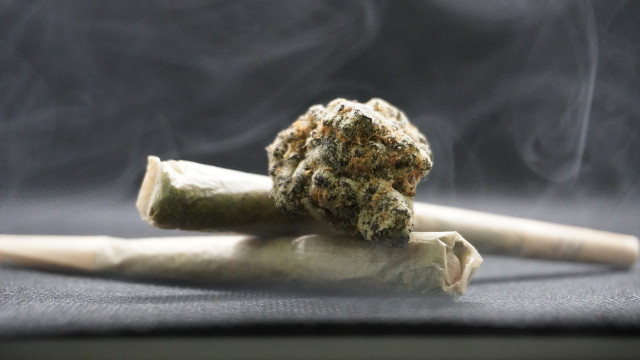
THC is the active ingredient in the cannabis plant that is responsible for its intoxicating effect. Here you can find out how the substance works, to what extent it is legal and where exactly it is found.
The two substances THC and CBD are often mentioned in the same breath. In both cases, they are active ingredients of the cannabis plant. While THC causes the typical psychoactive effects, CBD does not cause a high. But what exactly is THC and how does it work in the brain?
What is THC and how does the cannabinoid work?
THC stands for tetrahydrocannabinol and is mainly found in the flowers and leaves of the female cannabis plant. The active ingredient belongs to the group of so-called cannabinoids. The THC content of cannabis varies greatly between the different varieties and is influenced by breeding and cultivation methods.
THC exerts its effects primarily by binding to cannabinoid receptors, particularly cannabinoid-1 receptors (CB1 receptors), which are found primarily in the brain and central nervous system. These receptors are present in high density in regions responsible for movement control and information processing.
The cannabinoid receptors are normally only activated by the body’s own cannabinoids. These become active when the nervous system becomes unbalanced. The CB1 receptors then ensure that the nervous system stabilizes again. They do this by inhibiting certain neurotransmitters (such as glutamate or GABA).
If we take THC, this active ingredient activates the CB1 receptors for no reason at all, because the nervous system is usually already in balance. THC can dock onto all CB1 receptors in the brain and the entire body and therefore affect various processes in the body.
THC: Effects on body functions

(Photo: CC0 / Pixabay / 7raysmarketing)
THC is popular primarily because of its intoxicating effect. The substance triggers pleasant and euphoric feelings in the short term. This is because the activated CB1 receptors also affect other receptors, such as those where the neurotransmitter dopamine is active. Dopamine is also known as the happiness neurotransmitter because it activates the reward system in the brain and thus triggers feelings of happiness.
In the long term, however, regular THC consumption can have a negative impact on the functions of our brain. This is especially true for young people – because in a young person’s brain there are significantly more CB1 receptors than in an adult brain, and these are activated much more quickly. Consumption of THC therefore has more intense consequences for young people. This also increases the risk of harmful long-term consequences.
Although CB1 receptors are mainly located in the brain, they are also found in the cardiovascular and digestive systems, among others. Accordingly, regular cannabis consumption can also have a harmful effect on the heart and cardiovascular systems and promote various diseases (such as heart attacks or strokes).
Is THC legal?

(Photo: CC0 / Pixabay / Kinodel)
On April 1, 2024, the Cannabis Act was passed in Germany. Since then, cannabis and THC are no longer covered by the Narcotics Act and are legal in certain quantities. People over 18 years of age are allowed to carry up to 25 grams of cannabis in public spaces. 50 grams are permitted in private spaces. It is also legal to grow up to three live cannabis plants.
Cannabis consumption remains prohibited for minors due to the harmful effects it has on the young brain. It is also prohibited to consume cannabis within 200 meters of schools, daycare centers, playgrounds or youth facilities. Consumption is also illegal in pedestrian zones between 7 a.m. and 8 p.m.
What is CBD?
Cannabidiol (CBD) is another active ingredient in the cannabis plant, but it is not psychoactive. This means that CBD does not cause a high. In Germany, CBD was legal even before cannabis was legalized. You can find it on the market for a long time in various forms, such as oil, capsules or cream.
CBD is said to have a calming, anti-anxiety and anti-inflammatory effect. However, research on this is still relatively thin. According to the consumer advice center, CBD is also not as harmless as is often claimed. CBD can cause side effects such as drowsiness and dizziness, but can also promote sleep disorders and inner restlessness.
Read more on Techzle\.com:
- Hemp oil: ingredients, effects and application
- Become a non-smoker: Why you should quit smoking now
- Hashish consumption: These are the effects it can have
** marked with ** or orange underlined Links to sources are partly affiliate links: If you buy here, you are actively supporting Techzle\.com, because we then receive a small part of the sales proceeds. .